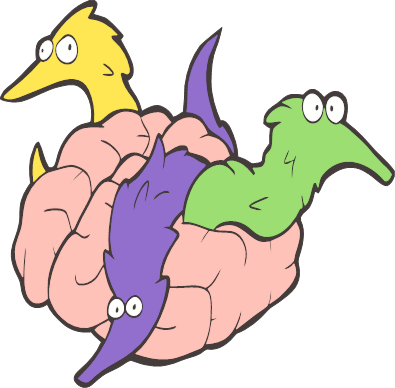I watched the entire video, but I timestamped the link to where I believe it matters most for any comrade that ever liked Star Trek, liberal idealistic and quasi-militaristic flaws and all, and would like to see a succinct and thorough summary of what they might have already felt, may have already inductively collected for themselves, but got it drowned out by “well the TNG gang got together by the end of Picard Season 3 so just enjoy it like a popcorn movie, 4/5” or even worse brainworms like “section 31 is based and it’s just cold hard reality that such an agency would have to exist for the Federation to exist, just like in based Deep Space 9 which was totally about wars and genocidal biowarfare plots and how cool and necessary they are.”
The Trek fandom site in the Lemmyverse is loaded with insufferable liberal/libertarian  and a fair amount of Thermian Arguments that justify anything that was presented on screen as not only good, but necessary if they were done by protagonist characters, and not just the flaws, weaknesses, and (for lack of a better term) sins of characters that weren’t intended to be infallible, let alone blindly emulated, no matter how cool it was when Sisko punched Q or whatever.
and a fair amount of Thermian Arguments that justify anything that was presented on screen as not only good, but necessary if they were done by protagonist characters, and not just the flaws, weaknesses, and (for lack of a better term) sins of characters that weren’t intended to be infallible, let alone blindly emulated, no matter how cool it was when Sisko punched Q or whatever.
TL;DR: I hope comrades find value in this concluding section of a much larger video, or maybe even watch the whole thing, which I also think is worthwhile. Also, I fucking despise Section 31 apologists because they make the Lemmyverse’s Trek site unbearable for me. If Kurtzman gets his way (especially with that Section 31 series he keeps jerking off about), Trek will become increasingly murderfucky gory edgy black ops obsessed bootlicking schlock with a vague and redundant nostalgia flavor.


Memes about how Sisko was infinitely based and all that tend to voluntarily mention that shit, too.
I can accept a flawed character struggling to survive and endure a dark time for the Federation. When his atrocities become “based” to edgier fans that basically saw DS9 as “THE ONE WITH THE WAR WAR WAR WAR WAR” I get really tired of their shit.
Somewhere in another universe there’s a version of DS9 where the focus was on rebuilding Bajor and all the complex post-revolution politics that inevitably happens, and not on technobabble and CGI space battles. We got glimpses of what it could have been like with episodes like “Duet”, “Shakaar”, “Progress” and “Past Prologue”. What could have been.
While I enjoyed DS9, I’m on my guard whenever someone in the internet wild says DS9 is their favorite Trek because there’s a significant chance it’s because of atrocity enjoying/apologia and WAR WAR WAR WAR WAR WAR lanyard warrior fixations.
Oh fully agreed on that. My personal litmus test is what they think of “Duet”. If they don’t remember it, that’s a bad sign, because it’s easily the best episode of the series.
I do think that DS9 was consistently better written than TNG on average. But on rewatches I just find myself disappointed with how many missed opportunities there were. In canon, Bajor is an old world, rich in a variety of cultures. There’s so much that could have been done with that setting in a post-occupation political-infighting context. The first few seasons started to go down this road. But in the end we got almost nothing. Honestly during rewatches I tend to skip most of the latter half of the series. I just don’t find the war to be interesting.
In contrast TNG was never really trying to be anything other than modernized-for-the-1980s TOS. Just high-concept episodic sci-fi. It succeeded brilliantly at that once Roddenberry’s counterproductive micromanagement was over by the end of season 2.